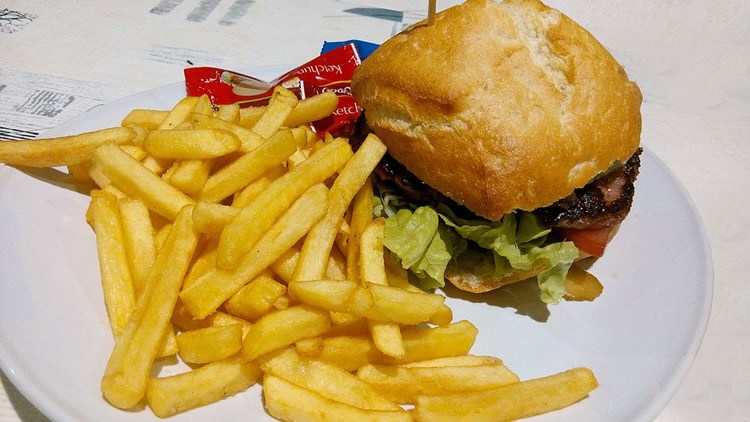It’s not just excess calories that are detrimental to our health, composition is important too, writes Dr George Crisp
There is much discussion in the medical and general media about the healthiness of food. Hardly surprising, as we face an unfolding epidemic of obesity, diabetes and other non-communicable diseases which, along with inactivity, are in large part related to our dietary excess.
But it’s not just excess calories that are detrimental to our health, it is quite clear that the composition is important too. Not all foods are equal. Processed foods, trans-fats and refined sugars are of particular concern.
As GPs we spend much of our day talking to people about health promotion and prevention, such as exercise and dietary modification. We are also aware of the cost, with high-energy, low-quality foods often being more affordable than healthier choices.
But while we’ve been generally good at giving advice about direct individual health affects, we rarely consider the broader health consequences of what our patients, and we, eat.
Yet the nature of our diet is clearly one of the major determinants of environmental health globally, with very significant secondary human health consequences. Surely this is particularly relevant for those who give health advice and therefore all of our responsibility?
We have now collectively converted an area the size of Africa, that’s 27% of the landmass of the planet, into a cattle ranch. An area the size of S America (13%) to growing staple crops and a further 3% for crops to feed livestock. Under business-as-usual growth and development, this would increase to 70% this century.
Half of the planet’s wildlife has been lost in the last four decades, with land use change being a dominant driver. Modern agriculture is also resulting in major disturbances in the planet’s phosphate and nitrogen cycles, polluting waterways, degrading soil and disseminating chemicals and other pollutants, all of which are unsustainable.
We are rapidly losing biodiversity; biologists are now calling this Earth’s sixth great mass-extinction event. As former Royal Society president Martin Rees famously said: “We are destroying the book of life before we have even read it”.
Yet the services ecosystems provide are absolutely essential for our health and well-being as well as for our economy. They provide services such as food, fibre, rubber and other materials; supporting services, like nutrient recycling, soil formation, pollination and seed dispersal; regulating services including the control of pests and diseases, local rainfall and microclimates; and cultural and aesthetic services.
Around half our medicines are sourced from nature; many of the important new compounds are waiting to be discovered in today’s forests and oceans.
It is clear that all of these services that we take for free will be affected and diminished by our current activities and sooner or later will undermine our health and prosperity.
Agriculture is also a major driver of climate change, which is not only deemed to be the biggest threat to our health this century, but is similarly affecting the planets ecosystems with the recent devastation of the Great Barrier Reef being a sobering reminder.
Climate change and the disruption of weather patterns is also starting to have an impact on freshwater and food security, with the world’s major crops unsuited to a warmer, more water-stressed and variable climate.
Food, it turns out, is central to our health and well-being, and what we grow and how we produce it is closely intertwined with other environmental stressors.
According to WHO, reducing meat consumption and eating more fruit and vegetables could avoid an estimated 8 million deaths annually, or 10% of global mortality. This could, in turn, reduce food-related greenhouse gas emissions by two-thirds, with a value to society of several trillion dollars each year.
If we don’t change course, then the risks of global and regional food insecurity increase. In the developing world this may mean higher rates of malnutrition and conflict. In fact, some recent conflicts, such as in Darfur and Syria have already been linked to droughts aggravated by climate change.
We in the developed world are not immune from affects either, as shortages result in higher prices, which leads people to buy more energy dense, low nutritional-value foods, as well causing a less varied diet.
And this is where we come in. As doctors, with our understanding of health and opportunities for health promotion, we can collectively make a real difference. Advising people to eat more healthily can improve planetary health as well as their individual health. It’s a win-win.
Dr George Crisp is WA Chair of Doctors for the Environment Australia


